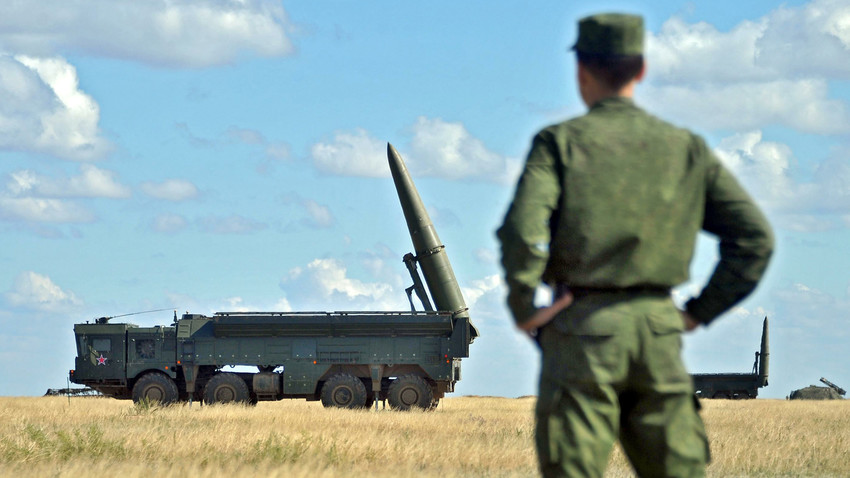New anti-ship missile will make Russia’s Iskander-M even deadlier

In early August Russia’s military battle tested new missiles for its most notorious land-based, short-range ballistic missile system Iskander-M.
The new projectiles, R-500 “
These missiles are readjusted for targeting second and third-class destroyers –
They also skirt above the water – at an altitude of only 5-10 meters, which means hitting it with any sort of sea-based anti-missile defense systems is practically impossible. The missile’s payload ranges from 200 to 500 kg. The lighter ones normally target destroyers, while the heavier ones are intended for cruisers.
According to TASS military analyst Viktor Litovkin, this ammo will be delivered to military sites in the Kaliningrad region, Crimea, and to Russia’s Far East of Russia as a deterrence against any potential enemy ships entering Russian waters.
If you want to find out why Iskander-M is considered to be one of Russia’s most notorious short-range ballistic missile systems, click on this link.
If using any of Russia Beyond's content, partly or in full, always provide an active hyperlink to the original material.
Subscribe
to our newsletter!
Get the week's best stories straight to your inbox